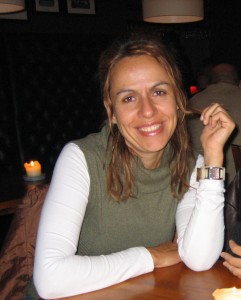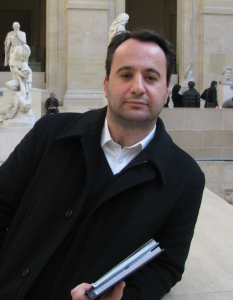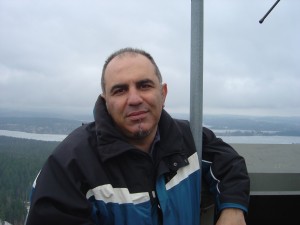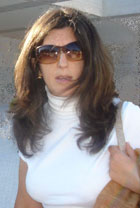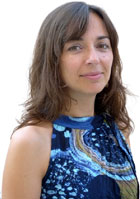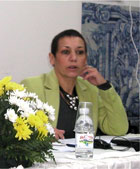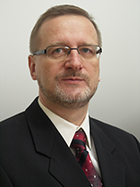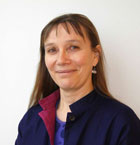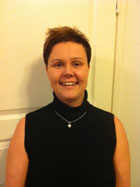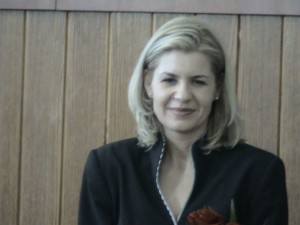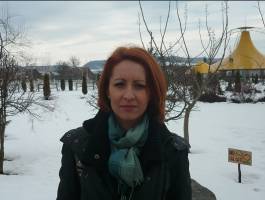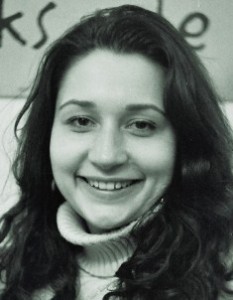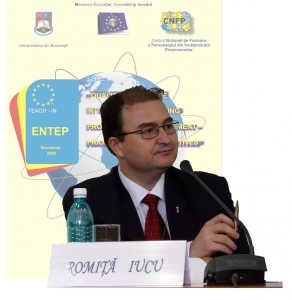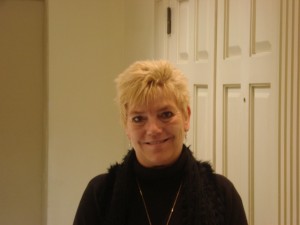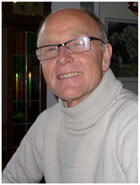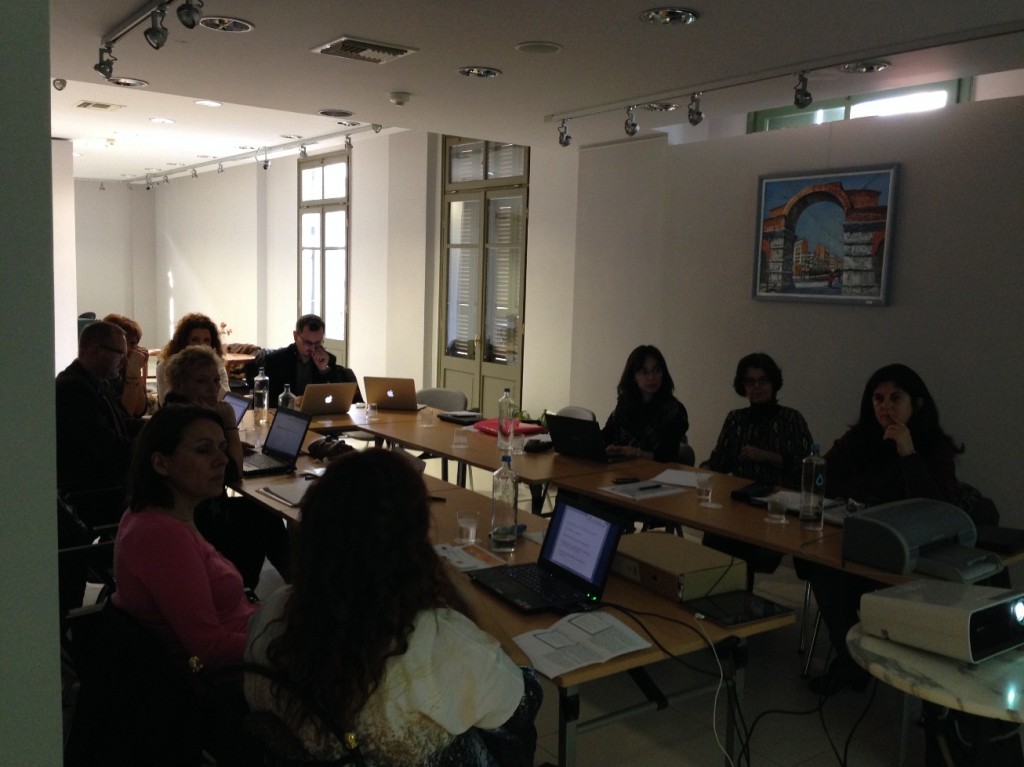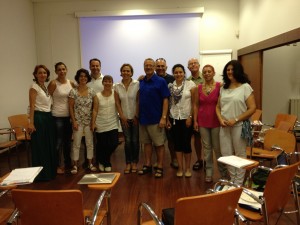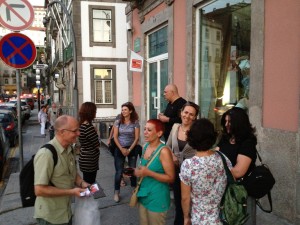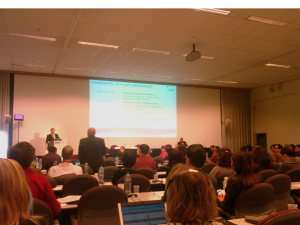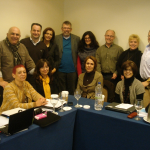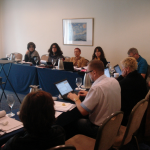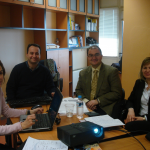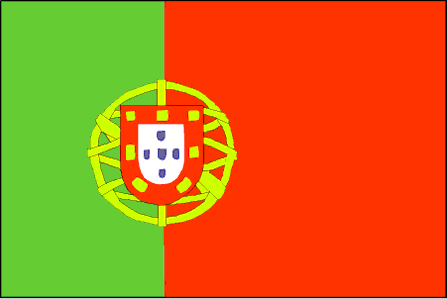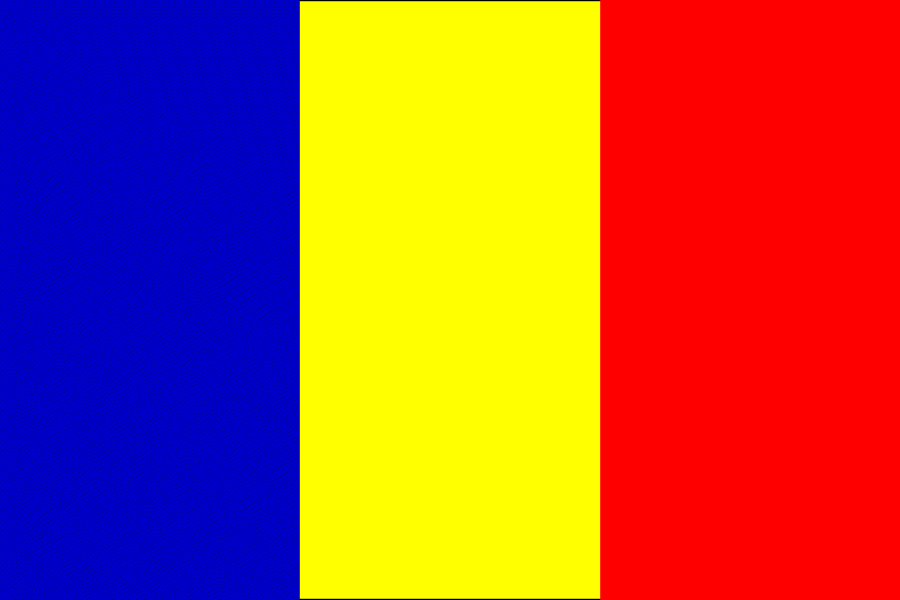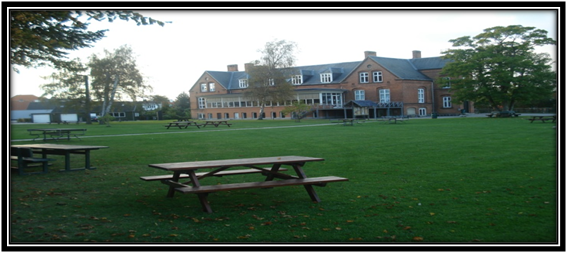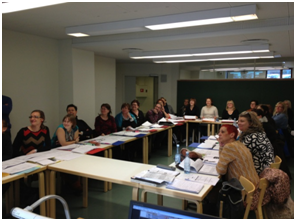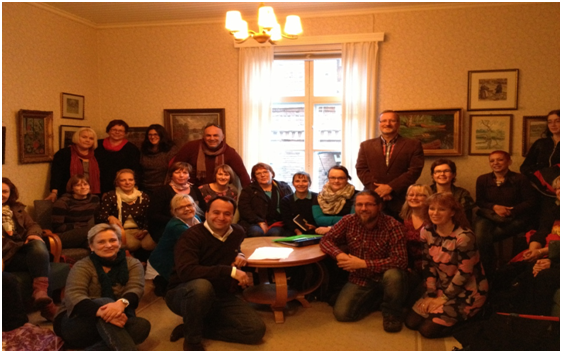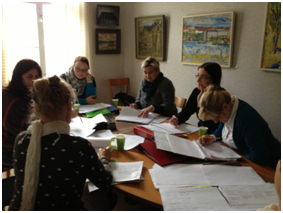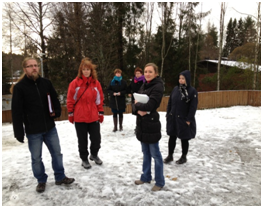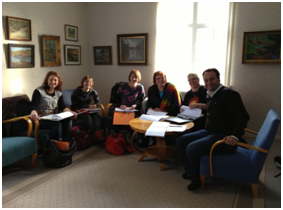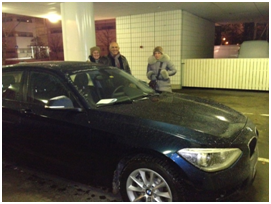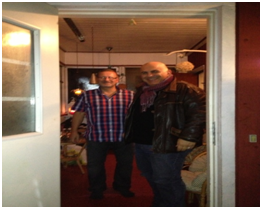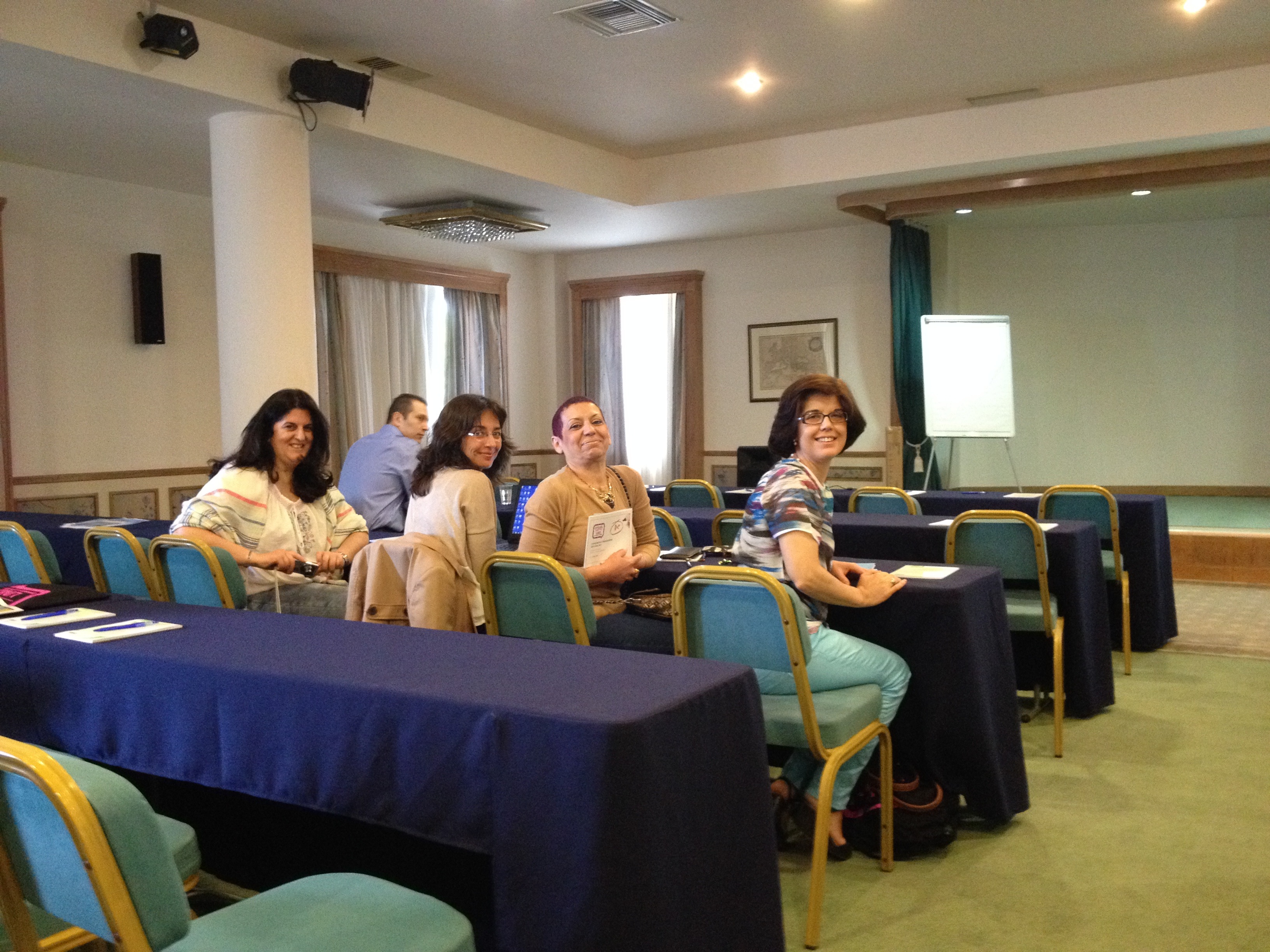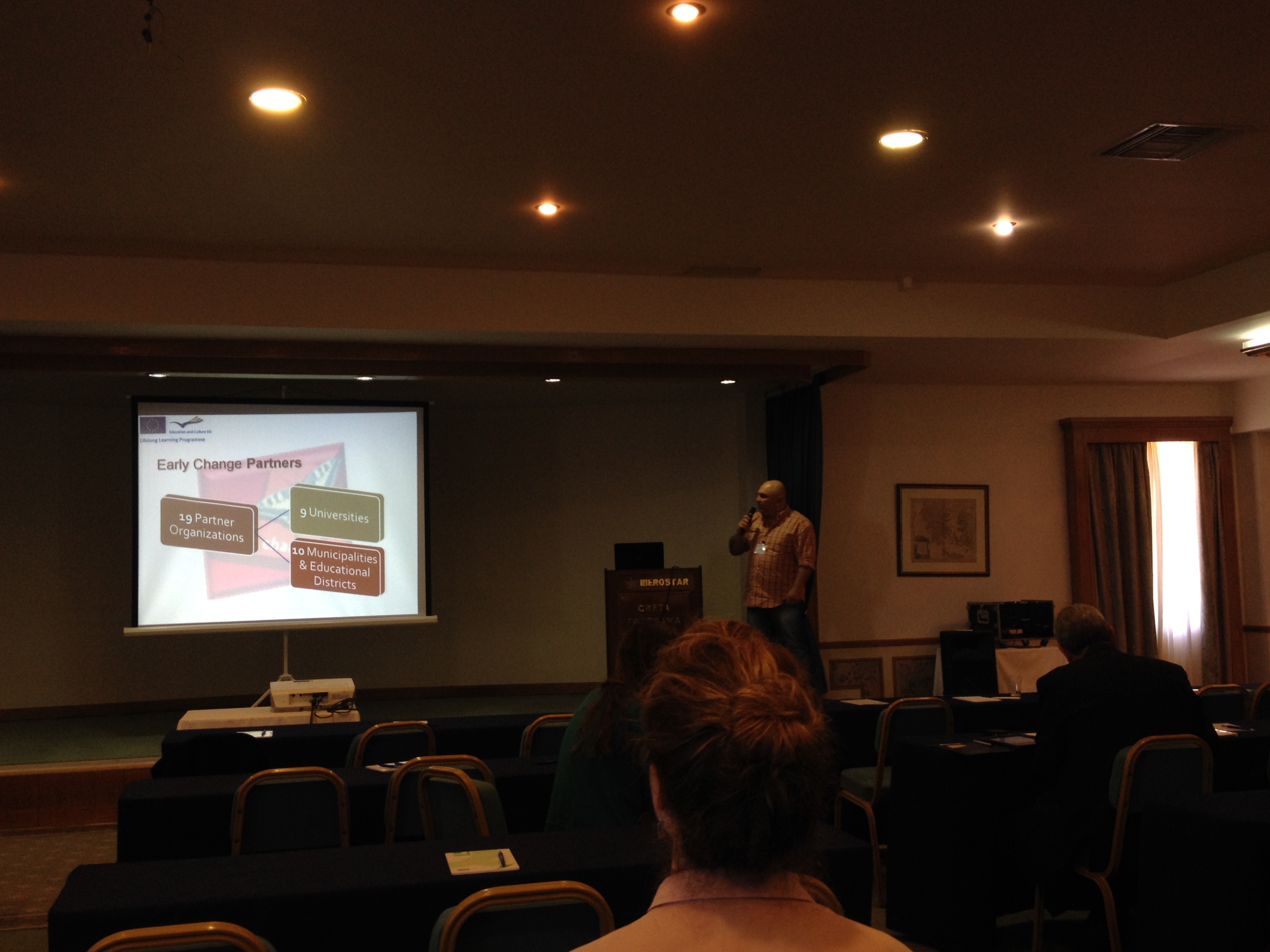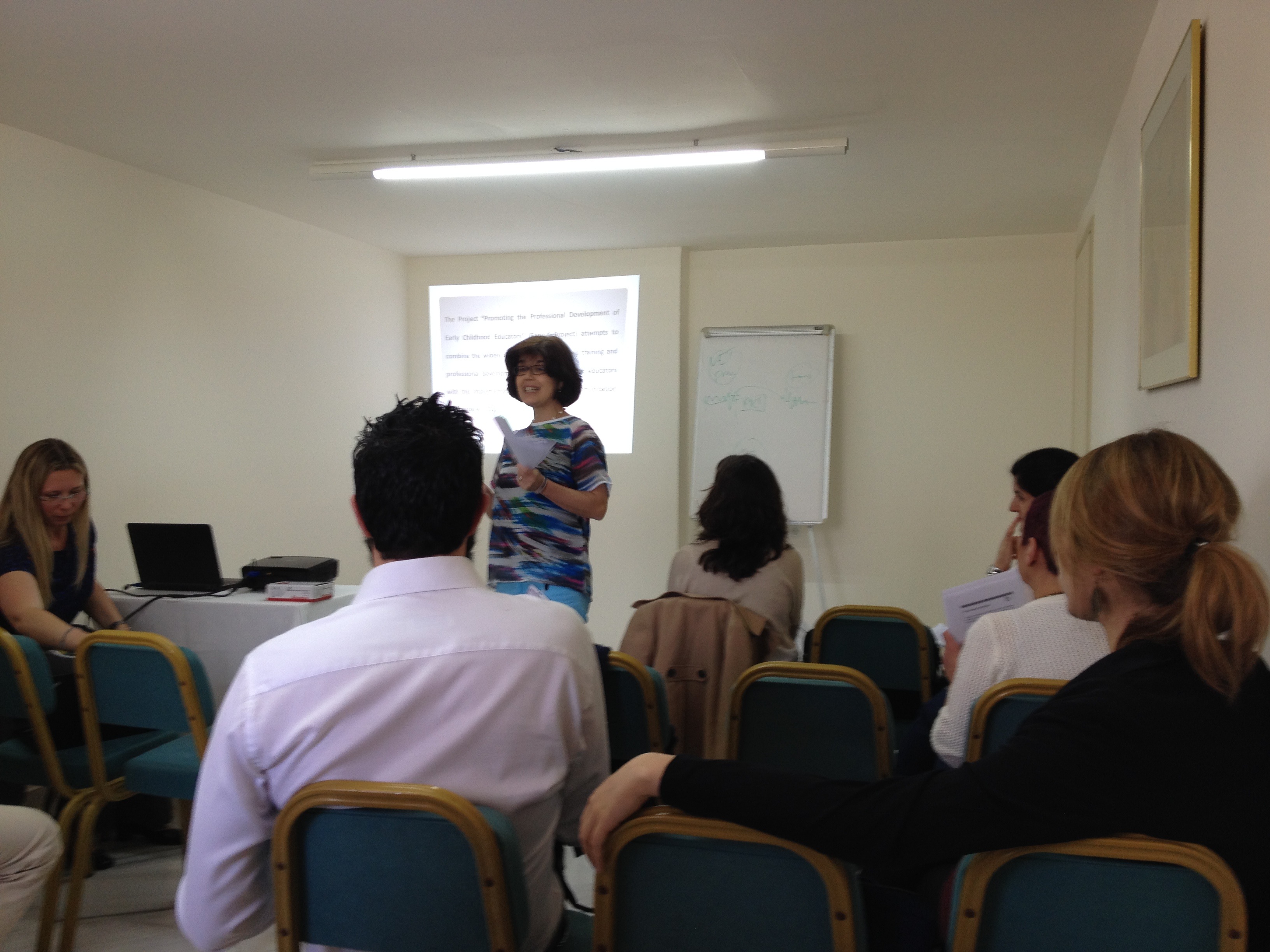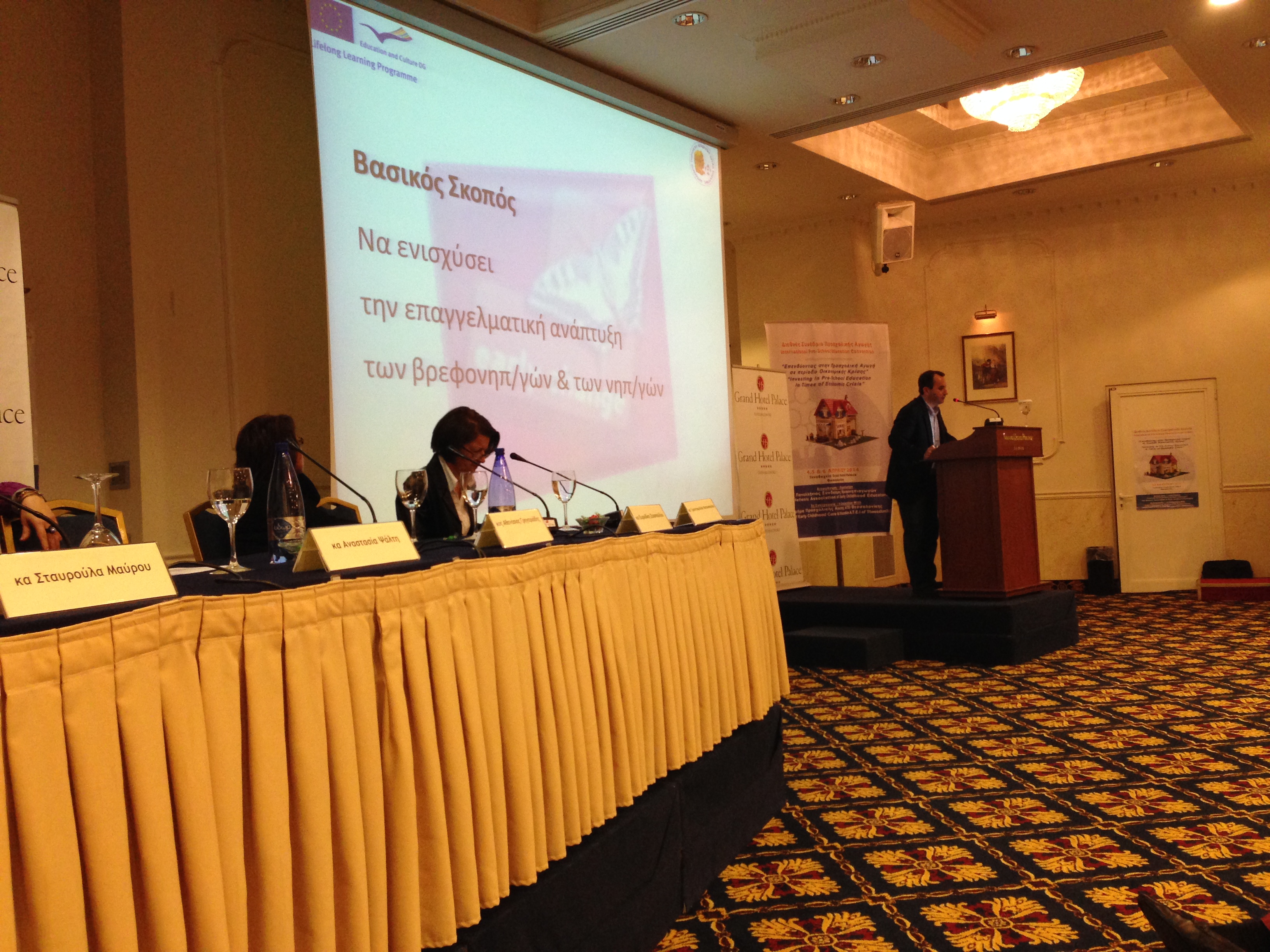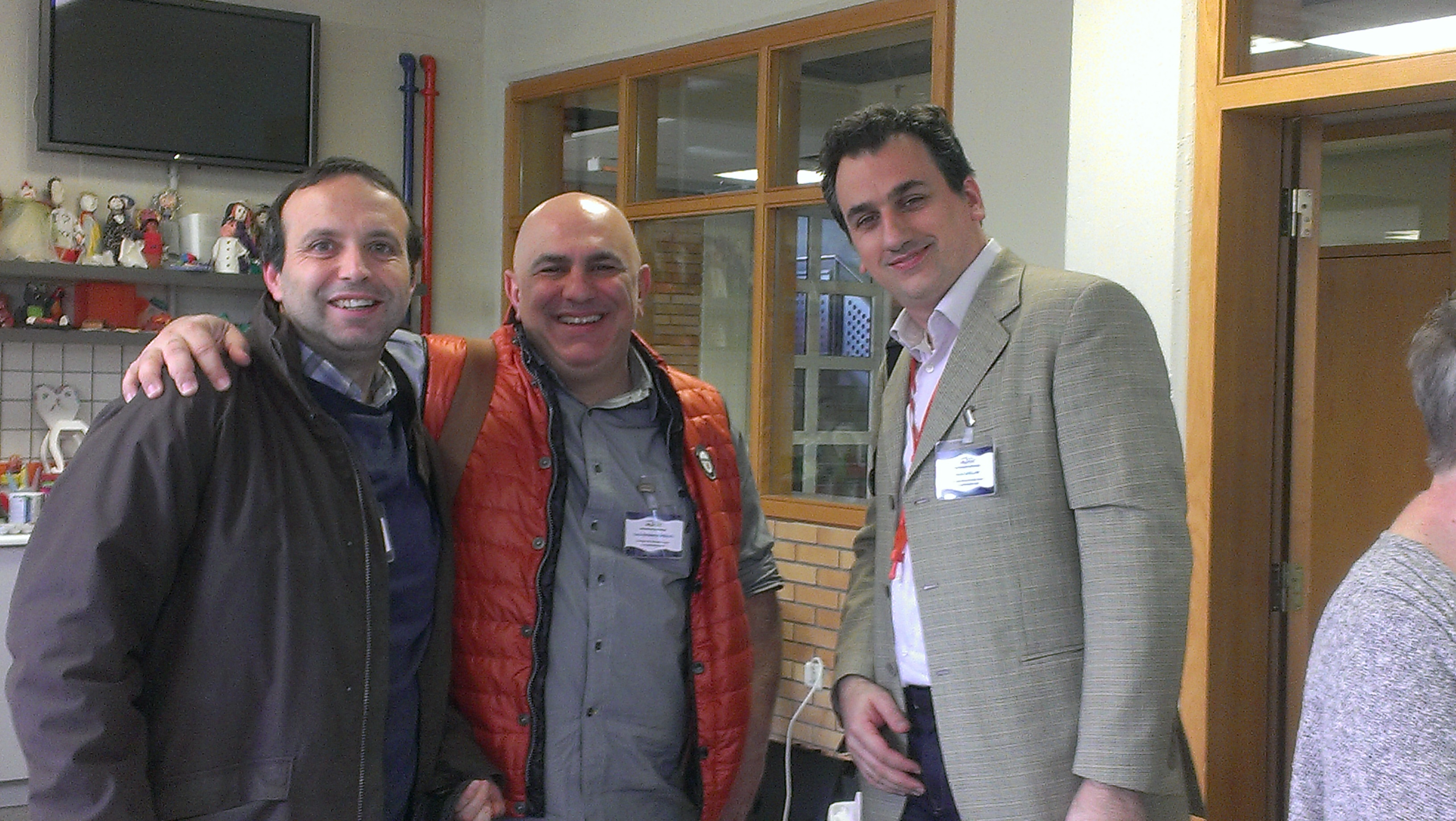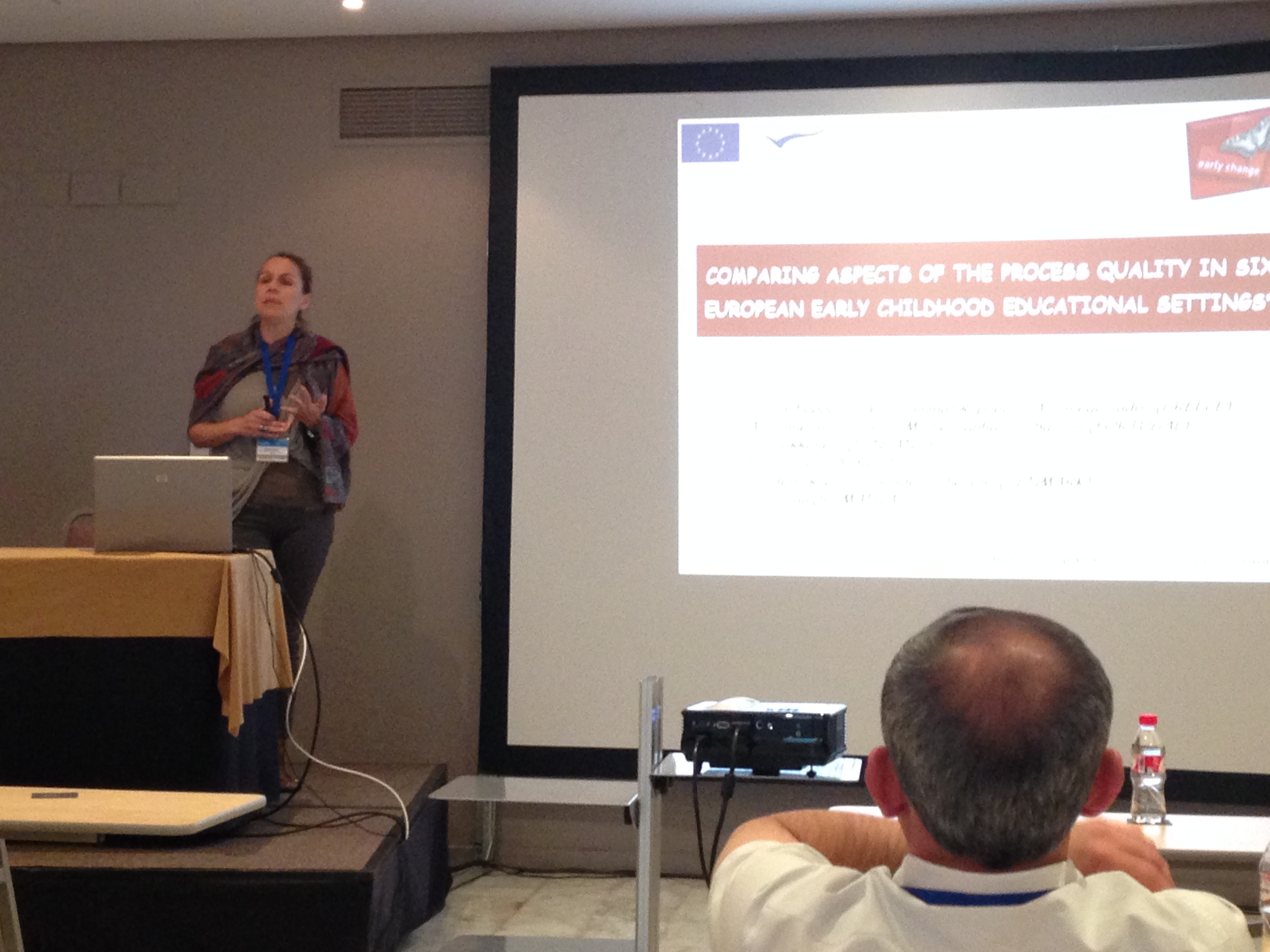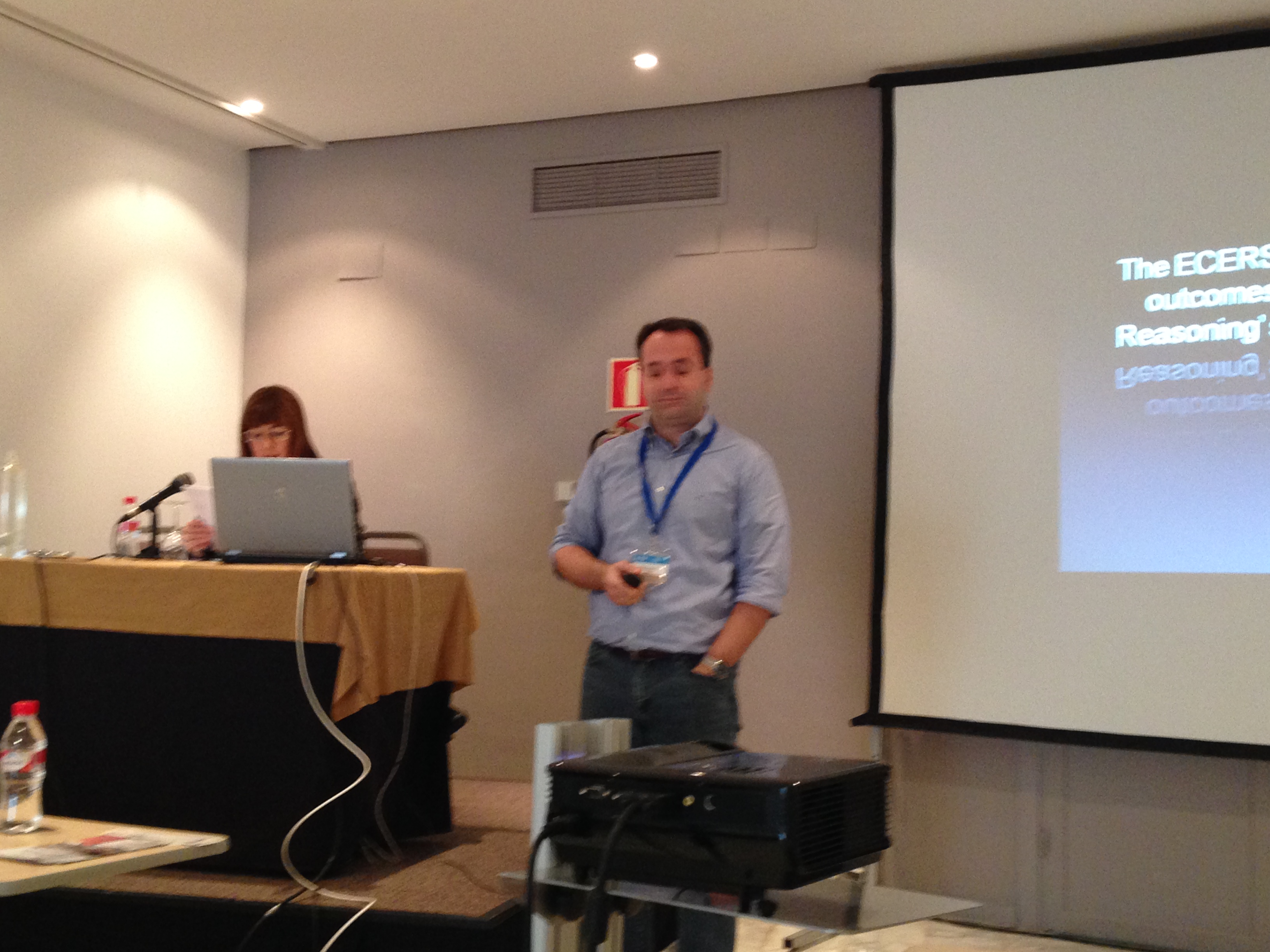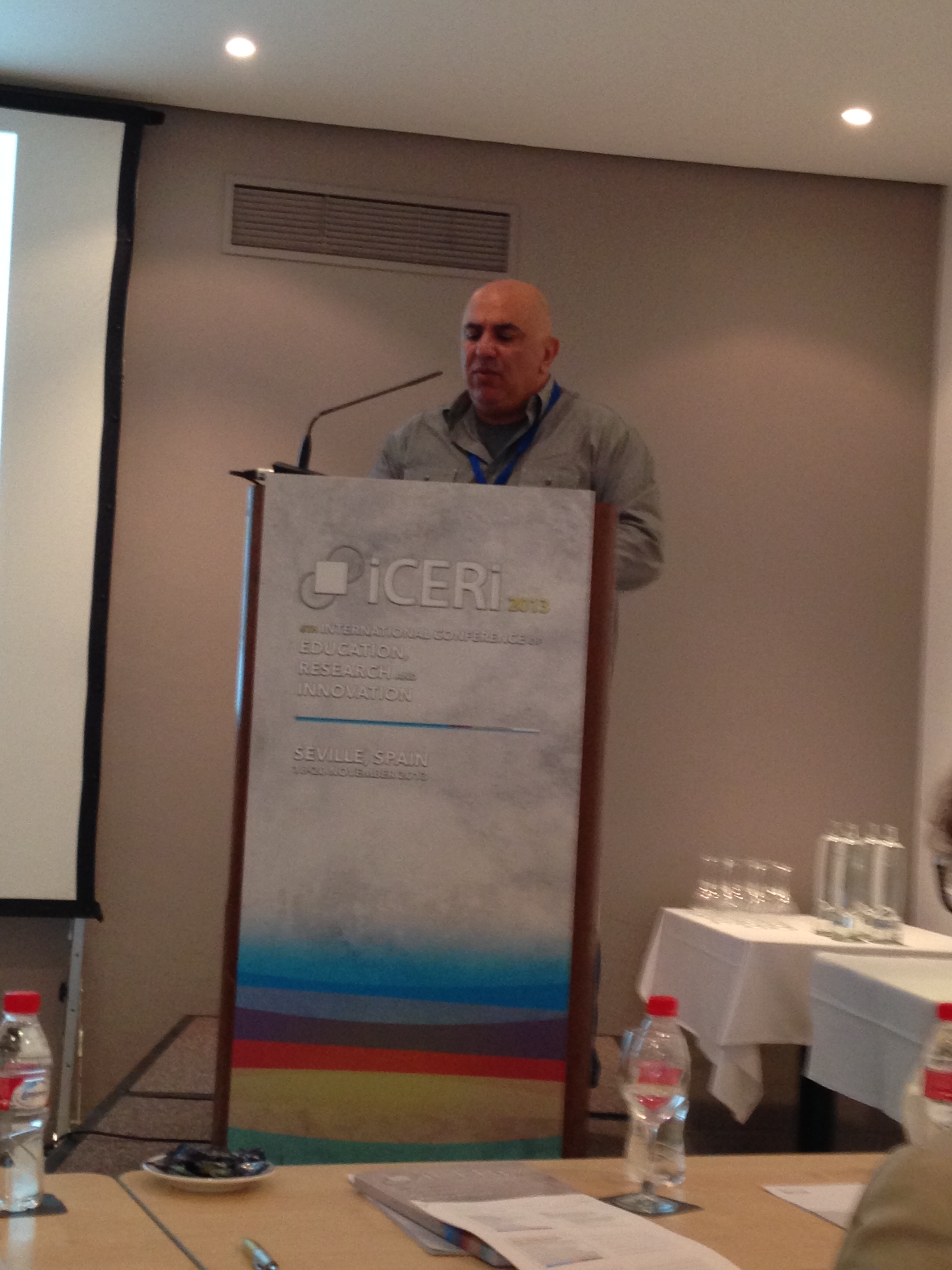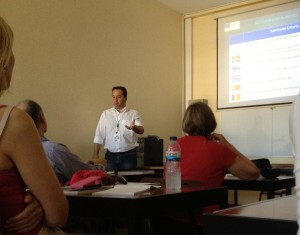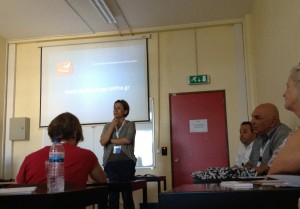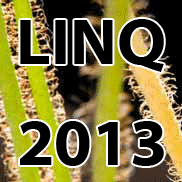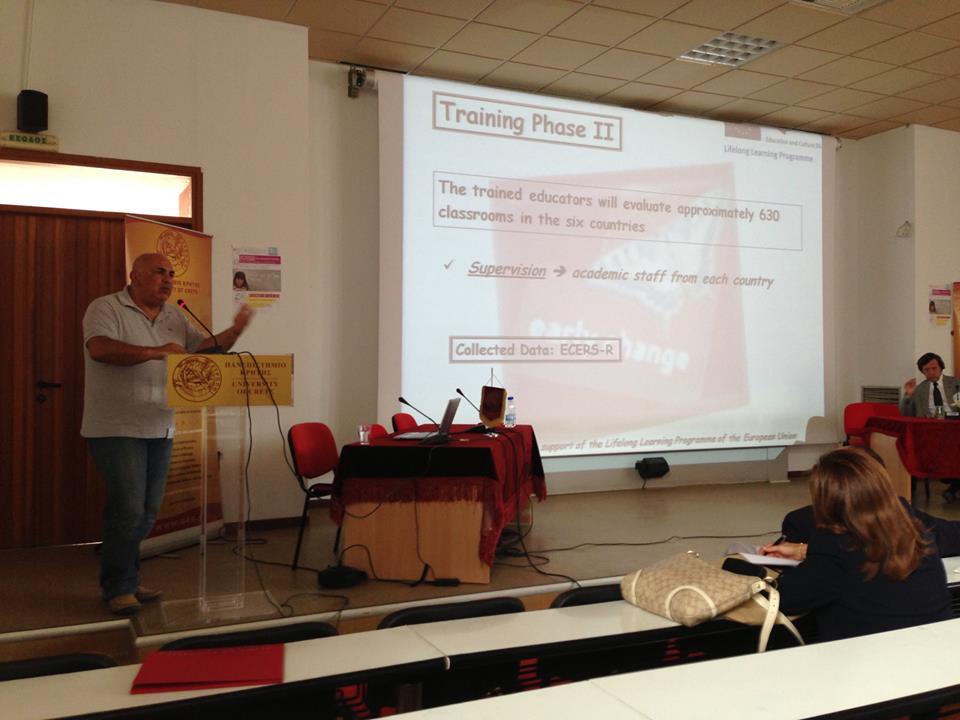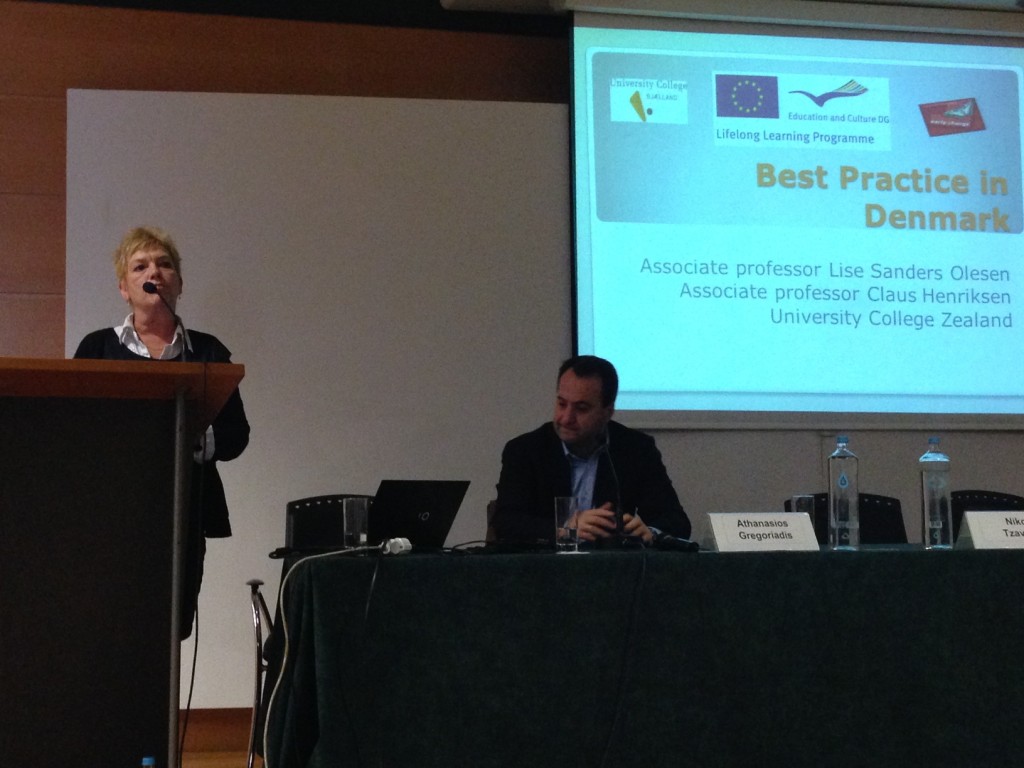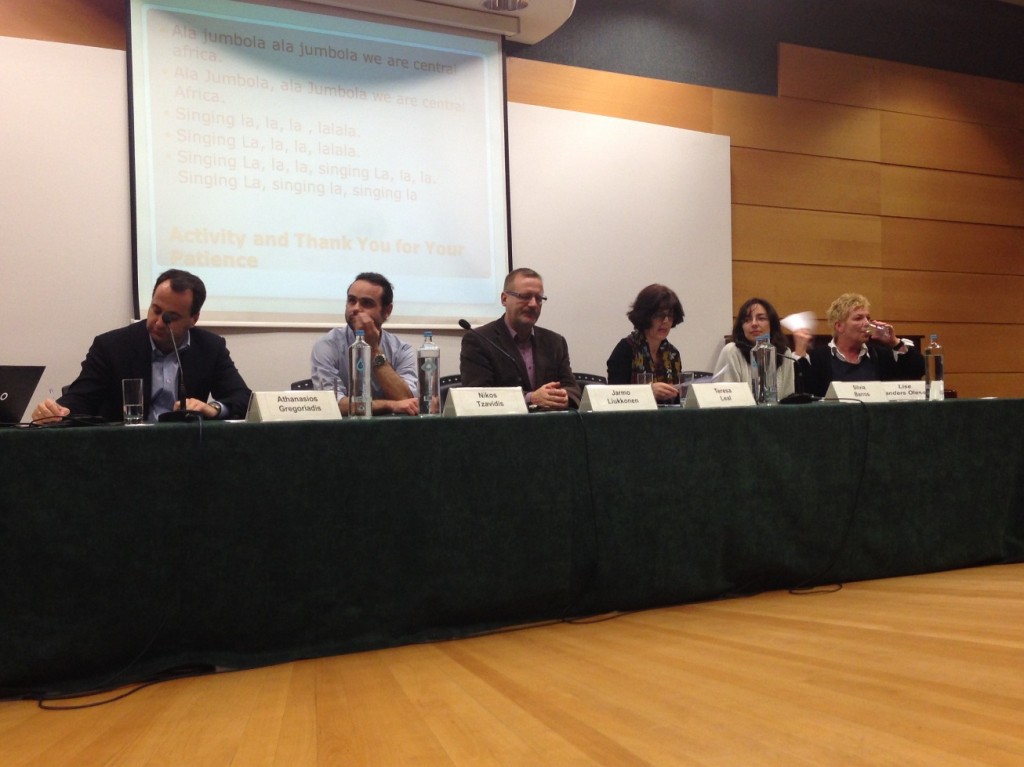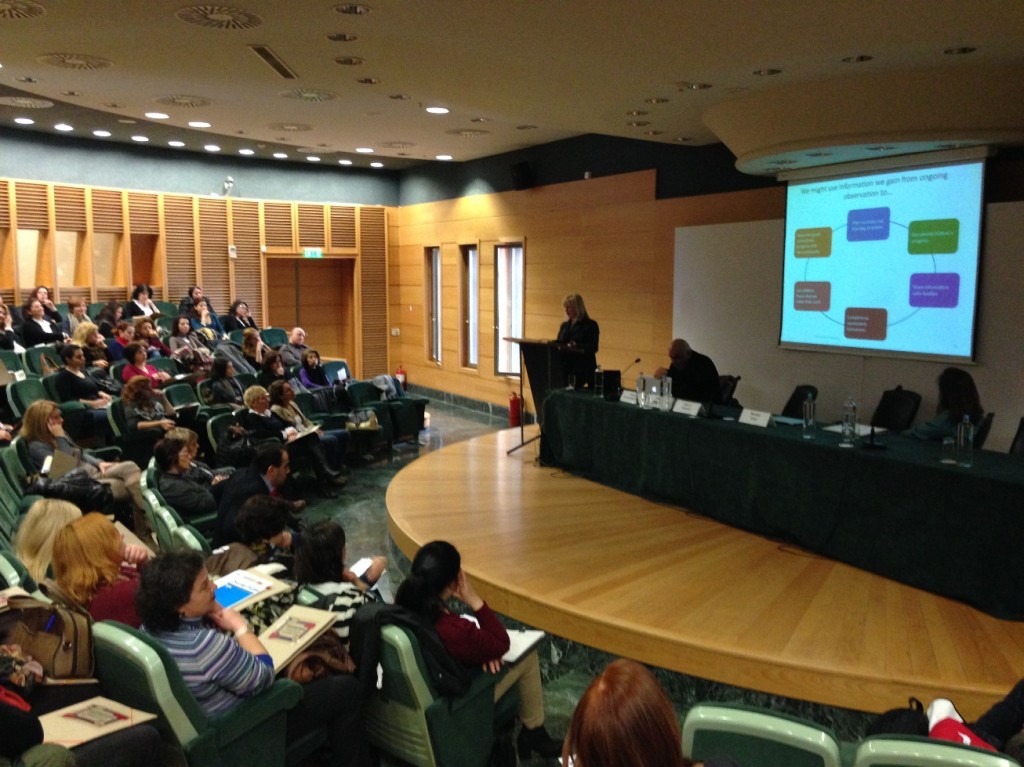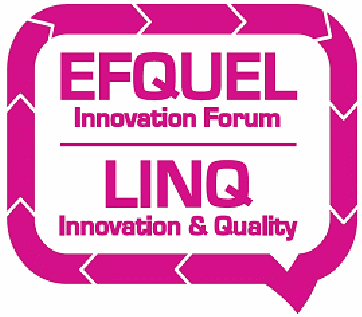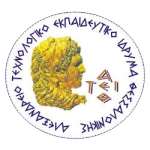Early Change Project Partners Project Activities

LINQ Conference 2014
25.02.2014 | Comments OffResults of the ‘EARLY CHANGE’ project will be presented in the EFQUEL Innovation Forum 2014 and International LINQ Conference 2014
http://www.learning-innovations.eu/2014/programme
The Conference will take place on the island of Crete in Greece, from 7th to 9th of May, 2014.

EARLY CHANGE WORKSHOP – PROGRAM
05.12.2013 | Comments Off|
International Perspectives on Early Childhood Education 25th of January 2014 Venue: Convention Center of Bank of Piraeus (Katouni 12 – 14, Thessaloniki) |
3rdSESSION
Work Plan
26.01.2012 | 1 Comment ››| STAGE OF THE PROJECT | OUTPUTS | ACTIVITIES | TIME PLANNING | PARTNERS INVOLVED |
| 1st MEETING | Workplan, Deadlines, Allocation of tasks, Evaluation strategy, Financial issues | 1st Meeting | February 2012 Thessaloniki / Greece | University Members |
| SELECTION PHASE | List with assessors / List with classes | Selection of: 1) assessors/early educators and 2) preschool classes | February – May 2012 | University Members |
| TRANSLATION PHASE | Translation scales / manuals / Seminar Workbook | Translation procedure | February – July 2012 | University Members |
| 2nd MEETING | Organizing the Training seminars | 2nd Meeting | September 2012 Porto, Portugal | University Members |
| TRAINING PHASE I | Training materials | Training Seminar in each country | September – December 2012 | All Participants |
| PROGRESS REPORT | Progress Report | Preparing the Progress Report | January – March 2013 (Deadline: 31/3/2013) | All Participants |
| TRAINING PHASE II | Evaluation data: ECERS-R score sheets, Good Practices | Evaluation of preschool classes in all countries | January – June 2013 | All Participants |
| DATA PROCESSING | Results | Entering data / Analyzing data | June – September 2013 | University Members |
| WRITING PHASE | Research papers, Conference presentations, E-book | Writing procedure | June 2013 – March 2014 | University Members |
| PREPARING THE FINAL PRODUCTS | Translation scales in 5 languages / Evaluation Report for each country / E-book | Organizing the final products | September – March 2014 | University Members |
| DISSEMINATION PHASE | Proceedings of the Workshop | International Workshop | May 2014, Greece | University Members |
Aims of the project
26.01.2012 | No Comments ››Aims
Three are the basic aims of this project:
(i) The first is the enhancement of the professional development of early educators,
(ii) The second is the implementation of ICT’s in the training of early educators from 6 E.U countries, and (iii) the third is the evaluation of the early
childhood education environments of these countries.
Objectives
(i) Professional development:
(a) One objective has to do with the acquisition from early educators of skills to work as trained assessors of Early Childhood Education Environments through their participation in the training phases of the project.
(b) Another objective is the development of self-assessment skills through the the implementation of the ECERS-R scale in their own classrooms.
(ii) Implementation of ICTs in the training of early educators:
(a) One objective is the enhancement of the e-literacy of early educators through the constant use of the web-based platform in the whole project.
(b) Another objective is the effective communication, support and feedback of early educators from the academic staff through the synchronous and asynchronous use of the website and the web-based platform.
(iii) Evaluation of early childhood education environments:
(a) One objective of the project is the collection of empirical data for the assessment of the structural quality and process quality of educational care and pre-primary settings for toddlers and preschoolers. These data will be collected by the participating early educators during the training phase II.
(b) Another objective is the comparison of the quality of early childhood education environments across six different educational systems by processing the selected data using advanced statistical analyses.
(c) A final objective is the recording of a wide range of ‘best practices’ implemented in early childhood classrooms in the participating countries. These data will be collected from the early educators during the training phase II, with the usage of an observation tool.
Project description
26.01.2012 | 1 Comment ››This proposal will contribute to the professional development of early educators (approximately 120) from 6 countries (Greece, Finland, Denmark, Portugal, Romania, Cyprus) who will be trained in using the Early Childhood Environmental Rating Scale-R (ECERS-R) that evaluates the quality of early childhood environment. These educators will acquire the skills to work as assessors in using ECERS-R and develop skills for an effective self-evaluation.
This proposal will also combine the professional development of educators with the implementation of ICTs with the use of a web-platform with synchronous and asynchronous sessions, thus enhancing their e-literacy skills. The web-platform and the web-site of the project, even after its completion, both in English, will provide opportunities for further communication and cooperation among educators.
Early educators from 9 educational districts and academics from 9 Universities will participate. The academics will be responsible for the training of educators, based on a well-developed training package, created for the needs of this project. This package will also contain the translated ECERS-R scale and its user’s manual in Greeks, Portuguese, Finnish, Danish & Romanian. This process will enhance trainers’ experience concerning the evaluation of early childhood environments, will widen their expertise in several dimensions of teachers and will enable academics to implement this training to other early educators.
An innovative output will be an interactive e-book, containing:(a) The comparative study concerning the quality of the 6 early childhood educational systems, and (b) A wide range of “Good Practices” for educators. Both outputs constitute an innovative action towards the improvement of early education across Europe. International academic and educational community will benefit from all products of this project (workshops, scientific papers, presentations, etc.), which will be available on the project’s web-site.
Target groups
26.01.2012 | No Comments ››- University members from nine participating countries
- Early Childhood Educators from six participating countries
- Cooperating partners.
- International academic & educational community
- In service early educators
- Educational policy & strategy makers

LINQ Conference 2014
25.02.2014 | Comments OffResults of the ‘EARLY CHANGE’ project will be presented in the EFQUEL Innovation Forum 2014 and International LINQ Conference 2014
http://www.learning-innovations.eu/2014/programme
The Conference will take place on the island of Crete in Greece, from 7th to 9th of May, 2014.

EARLY CHANGE WORKSHOP – PROGRAM
05.12.2013 | Comments Off|
International Perspectives on Early Childhood Education 25th of January 2014 Venue: Convention Center of Bank of Piraeus (Katouni 12 – 14, Thessaloniki) |
3rdSESSION
Work Plan
26.01.2012 | 1 Comment ››| STAGE OF THE PROJECT | OUTPUTS | ACTIVITIES | TIME PLANNING | PARTNERS INVOLVED |
| 1st MEETING | Workplan, Deadlines, Allocation of tasks, Evaluation strategy, Financial issues | 1st Meeting | February 2012 Thessaloniki / Greece | University Members |
| SELECTION PHASE | List with assessors / List with classes | Selection of: 1) assessors/early educators and 2) preschool classes | February – May 2012 | University Members |
| TRANSLATION PHASE | Translation scales / manuals / Seminar Workbook | Translation procedure | February – July 2012 | University Members |
| 2nd MEETING | Organizing the Training seminars | 2nd Meeting | September 2012 Porto, Portugal | University Members |
| TRAINING PHASE I | Training materials | Training Seminar in each country | September – December 2012 | All Participants |
| PROGRESS REPORT | Progress Report | Preparing the Progress Report | January – March 2013 (Deadline: 31/3/2013) | All Participants |
| TRAINING PHASE II | Evaluation data: ECERS-R score sheets, Good Practices | Evaluation of preschool classes in all countries | January – June 2013 | All Participants |
| DATA PROCESSING | Results | Entering data / Analyzing data | June – September 2013 | University Members |
| WRITING PHASE | Research papers, Conference presentations, E-book | Writing procedure | June 2013 – March 2014 | University Members |
| PREPARING THE FINAL PRODUCTS | Translation scales in 5 languages / Evaluation Report for each country / E-book | Organizing the final products | September – March 2014 | University Members |
| DISSEMINATION PHASE | Proceedings of the Workshop | International Workshop | May 2014, Greece | University Members |
Aims of the project
26.01.2012 | No Comments ››Aims
Three are the basic aims of this project:
(i) The first is the enhancement of the professional development of early educators,
(ii) The second is the implementation of ICT’s in the training of early educators from 6 E.U countries, and (iii) the third is the evaluation of the early
childhood education environments of these countries.
Objectives
(i) Professional development:
(a) One objective has to do with the acquisition from early educators of skills to work as trained assessors of Early Childhood Education Environments through their participation in the training phases of the project.
(b) Another objective is the development of self-assessment skills through the the implementation of the ECERS-R scale in their own classrooms.
(ii) Implementation of ICTs in the training of early educators:
(a) One objective is the enhancement of the e-literacy of early educators through the constant use of the web-based platform in the whole project.
(b) Another objective is the effective communication, support and feedback of early educators from the academic staff through the synchronous and asynchronous use of the website and the web-based platform.
(iii) Evaluation of early childhood education environments:
(a) One objective of the project is the collection of empirical data for the assessment of the structural quality and process quality of educational care and pre-primary settings for toddlers and preschoolers. These data will be collected by the participating early educators during the training phase II.
(b) Another objective is the comparison of the quality of early childhood education environments across six different educational systems by processing the selected data using advanced statistical analyses.
(c) A final objective is the recording of a wide range of ‘best practices’ implemented in early childhood classrooms in the participating countries. These data will be collected from the early educators during the training phase II, with the usage of an observation tool.
Project description
26.01.2012 | 1 Comment ››This proposal will contribute to the professional development of early educators (approximately 120) from 6 countries (Greece, Finland, Denmark, Portugal, Romania, Cyprus) who will be trained in using the Early Childhood Environmental Rating Scale-R (ECERS-R) that evaluates the quality of early childhood environment. These educators will acquire the skills to work as assessors in using ECERS-R and develop skills for an effective self-evaluation.
This proposal will also combine the professional development of educators with the implementation of ICTs with the use of a web-platform with synchronous and asynchronous sessions, thus enhancing their e-literacy skills. The web-platform and the web-site of the project, even after its completion, both in English, will provide opportunities for further communication and cooperation among educators.
Early educators from 9 educational districts and academics from 9 Universities will participate. The academics will be responsible for the training of educators, based on a well-developed training package, created for the needs of this project. This package will also contain the translated ECERS-R scale and its user’s manual in Greeks, Portuguese, Finnish, Danish & Romanian. This process will enhance trainers’ experience concerning the evaluation of early childhood environments, will widen their expertise in several dimensions of teachers and will enable academics to implement this training to other early educators.
An innovative output will be an interactive e-book, containing:(a) The comparative study concerning the quality of the 6 early childhood educational systems, and (b) A wide range of “Good Practices” for educators. Both outputs constitute an innovative action towards the improvement of early education across Europe. International academic and educational community will benefit from all products of this project (workshops, scientific papers, presentations, etc.), which will be available on the project’s web-site.
Target groups
26.01.2012 | No Comments ››- University members from nine participating countries
- Early Childhood Educators from six participating countries
- Cooperating partners.
- International academic & educational community
- In service early educators
- Educational policy & strategy makers

LINQ Conference 2014
25.02.2014 | Comments OffResults of the ‘EARLY CHANGE’ project will be presented in the EFQUEL Innovation Forum 2014 and International LINQ Conference 2014
http://www.learning-innovations.eu/2014/programme
The Conference will take place on the island of Crete in Greece, from 7th to 9th of May, 2014.

EARLY CHANGE WORKSHOP – PROGRAM
05.12.2013 | Comments Off|
International Perspectives on Early Childhood Education 25th of January 2014 Venue: Convention Center of Bank of Piraeus (Katouni 12 – 14, Thessaloniki) |
3rdSESSION
Work Plan
26.01.2012 | 1 Comment ››| STAGE OF THE PROJECT | OUTPUTS | ACTIVITIES | TIME PLANNING | PARTNERS INVOLVED |
| 1st MEETING | Workplan, Deadlines, Allocation of tasks, Evaluation strategy, Financial issues | 1st Meeting | February 2012 Thessaloniki / Greece | University Members |
| SELECTION PHASE | List with assessors / List with classes | Selection of: 1) assessors/early educators and 2) preschool classes | February – May 2012 | University Members |
| TRANSLATION PHASE | Translation scales / manuals / Seminar Workbook | Translation procedure | February – July 2012 | University Members |
| 2nd MEETING | Organizing the Training seminars | 2nd Meeting | September 2012 Porto, Portugal | University Members |
| TRAINING PHASE I | Training materials | Training Seminar in each country | September – December 2012 | All Participants |
| PROGRESS REPORT | Progress Report | Preparing the Progress Report | January – March 2013 (Deadline: 31/3/2013) | All Participants |
| TRAINING PHASE II | Evaluation data: ECERS-R score sheets, Good Practices | Evaluation of preschool classes in all countries | January – June 2013 | All Participants |
| DATA PROCESSING | Results | Entering data / Analyzing data | June – September 2013 | University Members |
| WRITING PHASE | Research papers, Conference presentations, E-book | Writing procedure | June 2013 – March 2014 | University Members |
| PREPARING THE FINAL PRODUCTS | Translation scales in 5 languages / Evaluation Report for each country / E-book | Organizing the final products | September – March 2014 | University Members |
| DISSEMINATION PHASE | Proceedings of the Workshop | International Workshop | May 2014, Greece | University Members |
Aims of the project
26.01.2012 | No Comments ››Aims
Three are the basic aims of this project:
(i) The first is the enhancement of the professional development of early educators,
(ii) The second is the implementation of ICT’s in the training of early educators from 6 E.U countries, and (iii) the third is the evaluation of the early
childhood education environments of these countries.
Objectives
(i) Professional development:
(a) One objective has to do with the acquisition from early educators of skills to work as trained assessors of Early Childhood Education Environments through their participation in the training phases of the project.
(b) Another objective is the development of self-assessment skills through the the implementation of the ECERS-R scale in their own classrooms.
(ii) Implementation of ICTs in the training of early educators:
(a) One objective is the enhancement of the e-literacy of early educators through the constant use of the web-based platform in the whole project.
(b) Another objective is the effective communication, support and feedback of early educators from the academic staff through the synchronous and asynchronous use of the website and the web-based platform.
(iii) Evaluation of early childhood education environments:
(a) One objective of the project is the collection of empirical data for the assessment of the structural quality and process quality of educational care and pre-primary settings for toddlers and preschoolers. These data will be collected by the participating early educators during the training phase II.
(b) Another objective is the comparison of the quality of early childhood education environments across six different educational systems by processing the selected data using advanced statistical analyses.
(c) A final objective is the recording of a wide range of ‘best practices’ implemented in early childhood classrooms in the participating countries. These data will be collected from the early educators during the training phase II, with the usage of an observation tool.
Project description
26.01.2012 | 1 Comment ››This proposal will contribute to the professional development of early educators (approximately 120) from 6 countries (Greece, Finland, Denmark, Portugal, Romania, Cyprus) who will be trained in using the Early Childhood Environmental Rating Scale-R (ECERS-R) that evaluates the quality of early childhood environment. These educators will acquire the skills to work as assessors in using ECERS-R and develop skills for an effective self-evaluation.
This proposal will also combine the professional development of educators with the implementation of ICTs with the use of a web-platform with synchronous and asynchronous sessions, thus enhancing their e-literacy skills. The web-platform and the web-site of the project, even after its completion, both in English, will provide opportunities for further communication and cooperation among educators.
Early educators from 9 educational districts and academics from 9 Universities will participate. The academics will be responsible for the training of educators, based on a well-developed training package, created for the needs of this project. This package will also contain the translated ECERS-R scale and its user’s manual in Greeks, Portuguese, Finnish, Danish & Romanian. This process will enhance trainers’ experience concerning the evaluation of early childhood environments, will widen their expertise in several dimensions of teachers and will enable academics to implement this training to other early educators.
An innovative output will be an interactive e-book, containing:(a) The comparative study concerning the quality of the 6 early childhood educational systems, and (b) A wide range of “Good Practices” for educators. Both outputs constitute an innovative action towards the improvement of early education across Europe. International academic and educational community will benefit from all products of this project (workshops, scientific papers, presentations, etc.), which will be available on the project’s web-site.
Target groups
26.01.2012 | No Comments ››- University members from nine participating countries
- Early Childhood Educators from six participating countries
- Cooperating partners.
- International academic & educational community
- In service early educators
- Educational policy & strategy makers

